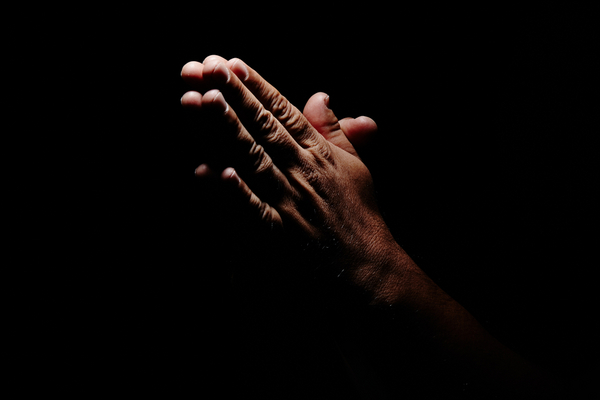
Well-educated religious people are just as scientifically literate as their more secular counterparts — yet most still overwhelmingly reject theories of human evolution and the Big Bang, new research finds.
These well-educated believers have positive views of science, in general, and understand the scientific method, but selectively reject certain theories that conflict with their religious beliefs, said study lead author Timothy O'Brien, a sociologist at the University of Evansville in Indiana.
"Folks are taking almost like a cafeteria approach or a smorgasbord approach," O'Brien told Live Science. "They'll take a little bit from science when it suits them. They'll take al little bit from religion when it suits them, and combine them into a personal narrative that they find appealing." [8 Ways Religion Impacts Your Life]
Consistent gap
Despite near-complete consensus among scientists, about half of Americans reject the notion that humans evolved from earlier primates and about four in 10 believe the Earth is less than 10,000 years old. Those who are more religious are likelier to reject the Big Bang and evolution, surveys have repeatedly found.
To understand this trend, O'Brien and his colleague Shiri Noy, a sociologist at the University of Wyoming, used data from the General Social Survey, a set of questions asked in 2006, 2008 and 2010 to test people's attitudes toward and knowledge of science. One question asks whether it's true that the father's genes determine a baby's gender, while another asks people whether they agree that science that advances the frontiers of knowledge is necessary.
Of the 2,901 respondents the researchers analyzed, about 43 percent were labeled traditional, meaning they preferred religion over science. About 36 percent were classified as moderns, meaning they privileged science over religion, and 21 percent were post-secular, meaning they viewed both religion and science favorably. Of these categories, the post-secular group most consistently rejected the Big Bang and human evolution.
Get the world’s most fascinating discoveries delivered straight to your inbox.
About 21 percent and 33 percent of traditionals believe in the Big Bang and human evolution, respectively. The modern and the post-secular respondents had roughly the same level of schooling and science knowledge, but differed greatly in their belief in evolution and the Big Bang. About 88 percent of moderns thought humans had evolved from earlier species, versus 6 percent of post-secular respondents; 68 percent of moderns believed the universe began with a big explosion, while only 3 percent of post-secular individuals agreed.
"It's almost a uniform rejection" by post-secular respondents, O'Brien told Live Science.
Half of the post-seculars were evangelical Protestants, whose leaders reject the Big Bang and evolution. But the category also included Catholics, Jews and mainline Protestants, who similarly rejected the Big Bang and evolution even though many of their religious leaders support these scientific theories, O'Brien said.
Overall, however, post-secular respondents viewed science positively. The findings suggest that simply educating the public is unlikely to drive greater acceptance of these theories, O'Brien said.
"The difference between the post-secular and the modern group is not a matter of a knowledge deficit," O'Brien said. The post-secular people "understand genetics and experimental methods and statistics," he said.
Corruption of science?
Many of the post-secular people say they support science, but see evolution and the Big Bang theory as corrupted science, O'Brien said.
The findings are generally consistent with results from past surveys, said John Evans, a sociologist at the University of California, San Diego, who studies the relationship between religion and science.
One reason the educated religious may be skeptical is that they think scientists are overstepping the bounds of purely naturalistic explanation. Instead, the theories seem to address philosophical questions, such as why humans are here and what the purpose of the universe is, said Evans, who was not involved in the study.
"Scientists like to portray what they're doing as making fact claims about the natural world," Evans told Live Science. "I think that the public doesn't view that quite so cleanly. They see scientists as making moral or meaning claims about the world at the same time."
The findings were published today (Jan. 29) in the journal American Sociological Review.
Follow Tia Ghose on Twitterand Google+. Follow Live Science @livescience, Facebook & Google+. Originally published on Live Science.

Tia is the managing editor and was previously a senior writer for Live Science. Her work has appeared in Scientific American, Wired.com and other outlets. She holds a master's degree in bioengineering from the University of Washington, a graduate certificate in science writing from UC Santa Cruz and a bachelor's degree in mechanical engineering from the University of Texas at Austin. Tia was part of a team at the Milwaukee Journal Sentinel that published the Empty Cradles series on preterm births, which won multiple awards, including the 2012 Casey Medal for Meritorious Journalism.
